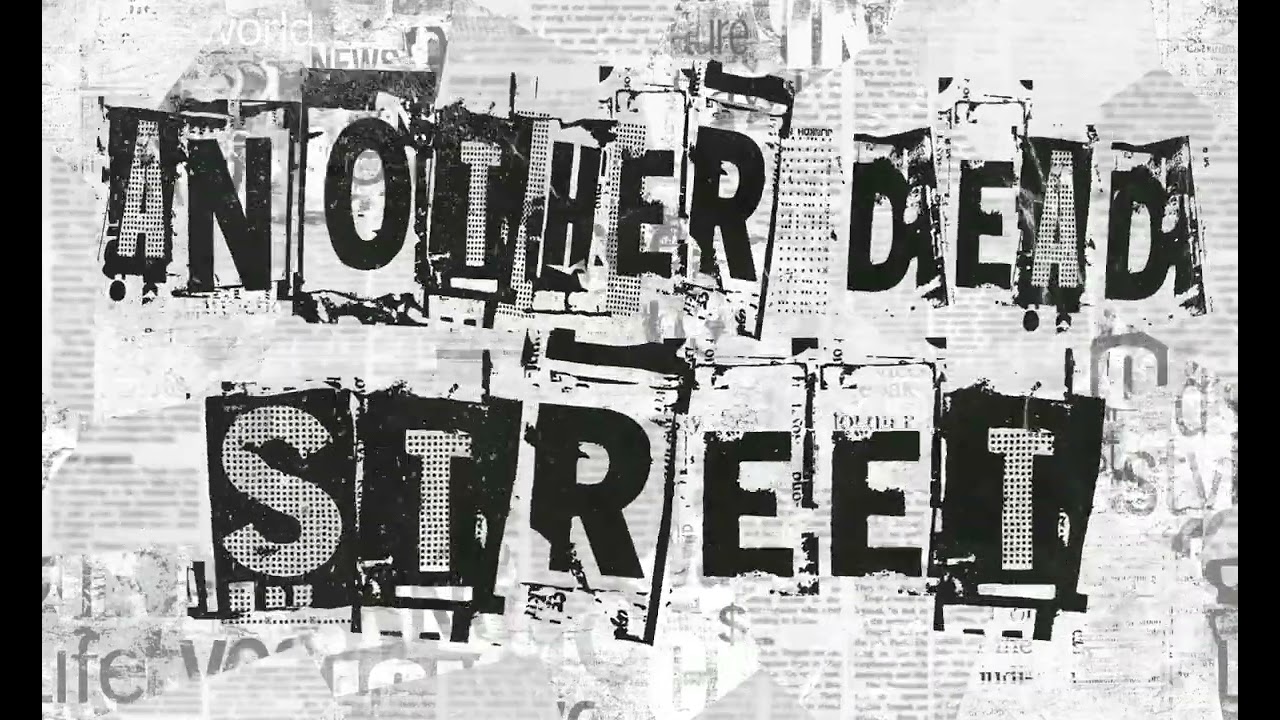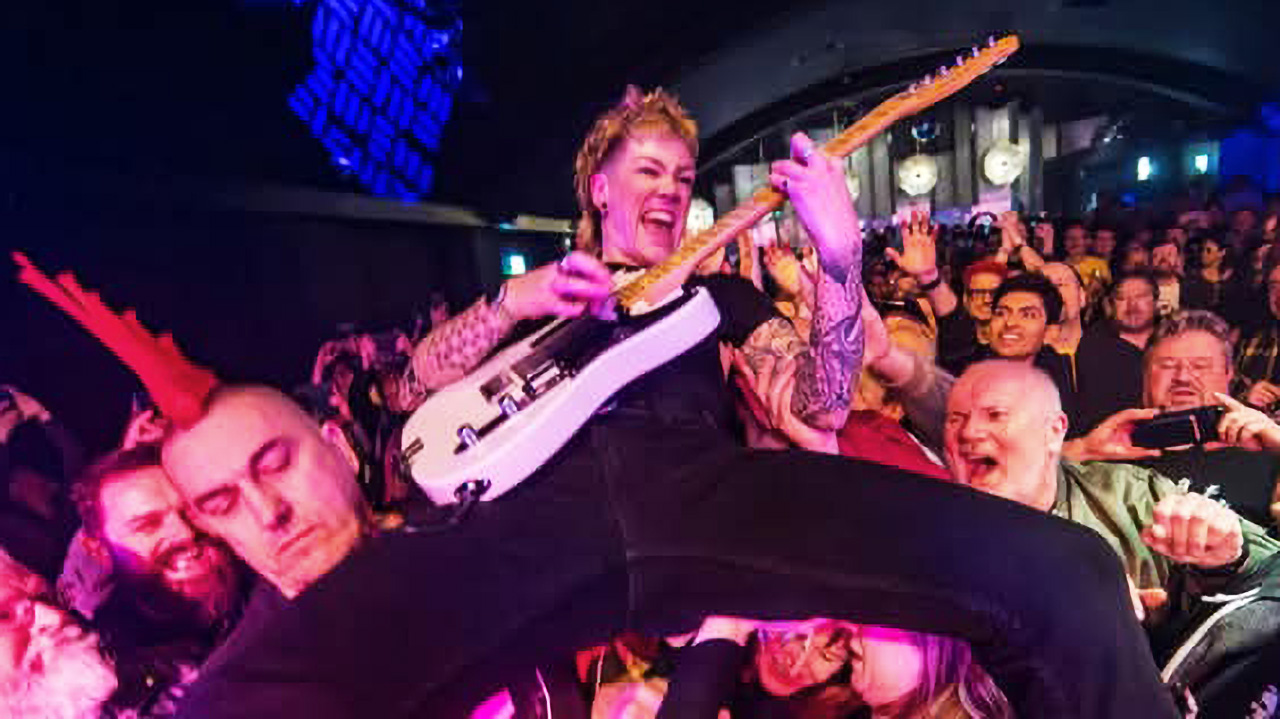Essex duo the Meffs have delivered impressive festival slots and played an arena tour supporting Alice Cooper, and they’re currently on the road with Frank Carter and the Sex Pistols.
Frank Turner produced their debut album, What a Life – a frantic mixture of Britpop and punk. They blast you with a raucous tsunami of guitar, with Lily Hopkins’ live tone as raw and visceral as you’ll ever hear.
The concept of a rock duo is not new; but in a world that’s seen the White Stripes, Black Keys, and Sleater-Kinney, the Meffs’ approach to an absent bass player is novel.
Hopkins splits her signal to two guitar amps but also a bass amp, using its ability to deliver frequencies the guitar doesn’t usually occupy. It provides a full-spectrum tone, filling every space a mix engineer would apply to other instruments.
Hopkins developed this ferocious wall of guitar through a lot of trial and error, she says. “I had very few reference points – no one saying, ‘Try this.’ I just played through a bass amp when we first started, then added a second amp.”
When the Meffs signed to Marshall Live Agency she got to try that company’s products.
“It’s the amp most of us want, right?” she grins. “The Origins are ideal for my sound. They’re not complicated, and don’t have particularly distorted sounds. It’s very clean, which is how I like it. I like to distort myself!”

On stage she’s powered by an Origin 50 combo, an Origin 20 head, and a Fender Rumble bass combo. One of the Origins has the gain pushed enough to “crack up when I go full blast” while the other is left with headroom, to be kicked in as a solo boost.
Hopkins says she’s still working on her pedal setup.
“I’ve sworn by the Big Muff forever. I always had a Rat pedal at home, and I could never quite get the sound. When I moved over to using the Marshall amps, because they’re so clean, I put the Rat back on my board, and it works so well.
“It just makes everything sound really big. I can push it to where it sounds sort of fuzzy – it’s not just a distortion.” There’s also an overdrive pedal for feedback and an EHX Micro Pog for octave effects.
Her strings could be seen on a heavy construction site. “I use a 56 bottom string,” she explains. “I used to use 54s, but I wanted a little bit extra.” She’ll use either 12-56 or 11-56 (which she describes as “quite light on the top”) depending on the brand.
Joan Jett is my biggest influence – I love the attitude. You think it’s simple, but it’s so effective
“Although you get more depth, it can get a bit muddy when the strings are thick,” she says. “But I switch it up and do a lot of single string stuff, and that’s where it really comes into its own.”
Hopkins is clearly blessed with one of the world’s most aggressive picking hands. Despite her choice of gauges, she found herself breaking strings at every show when she used heavy gauge picks. When she tried light picks she began snapping them. “So now I just stick with .73 picks.”

She cites riot grrrls and other loud women as her inspirations.
“Joan Jett is probably my biggest influence – I love the attitude. You think it’s simple, but it’s so effective,” she enthuses.
“But then I love Hole and L7; that grungy, heavy, quite simple-sounding music. I heard it and thought, ‘I’m going to give that a go.’ It was a good gateway for me.”
She asserts: “I haven’t consciously been influenced by specific guitar players. Some people are like, ‘I’d love to be like this,’ but I don’t think I had that feeling. I just really loved the idea of playing a guitar. It just lives in me, like that’s where it should be.”
GIPHY App Key not set. Please check settings